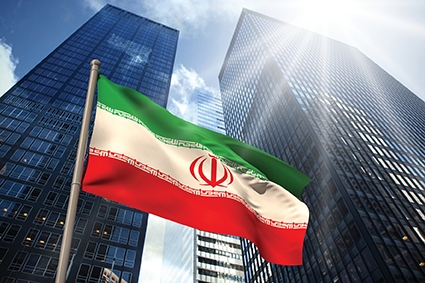Iran & Its Regional Ambitions
Historically, Iran has always been a regional power. From Achaemenids to the Sasanians, in the ancient period and the XVII-XVIII cc., Iran, under various dynasties, aspired to achieve a major role in the Middle East, South Caucasus or parts of Central Asia. When, during the Cold War period, sanctions were placed against Tehran’s nuclear program, Iran was constrained in expanding its role in the above-mentioned regions.
However, sanctions were officially lifted in 2016 and the Trump administration seems to have no plans to change course in the near future. In fact, Iran’s role in the region is only set to increase, though there are significant constraints the country will face with Russia and Turkey being so well represented both militarily and economically in the South Caucasus and Central Asia.
Russia and Iran have long been geopolitical rivals. Russia, for instance, wants to obstruct any Iranian moves to establish Russian-influence-free pipelines or railways to Armenia and Georgia. Yet both countries will nevertheless work together to block Western-led infrastructure projects. Another common interest will be to avoid any foreign military presence in the region, particularly in Georgia.
Iran has lagged far behind its regional competitors in terms of economic and military influence in the region, but the country has a number of reasons to now increase its involvement in the South Caucasus. One is Europe’s willingness (although unsuccessful) to diversify its gas market from Russian gas. Thus, access to Georgia’s Black Sea coast is a natural development. Tehran has oft expressed its willingness to use the Trans-Anatolian Gas Pipeline and the Trans-Adriatic Pipeline. For Iran, another way to reach Batumi and Poti would be through Armenia.
Difficult relations with Turkey over the Syrian conflict make the route through Armenia a good option. Talks around the construction of a $3.7 billion railway are stalled as there are difficulties finding finances for the project. Another reason is that neighboring Azerbaijan already has the necessary pipeline infrastructure and the upcoming Baku-Tbilisi-Akhalkalaki-Kars railway will only strengthen Iran’s willingness to use the Azerbaijan route.
On June 6, the heads of Georgian, Iranian and Azerbaijani railways discussed launching a new South-West Transport Corridor, in which Georgia will play a vital transit role connecting the Persian Gulf and India to Europe.
Again, because of Russian interference, regional powers are circumventing Armenia to get their exports to the European market. Iran intends to increase its trade with South Caucasus countries and it was mentioned that trade with Georgia and Azerbaijan is expected to grow from approximately $1 billion to $3 billion.
Post-sanctions, another area of Iranian involvement could be the Nagorno-Karabakh conflict. There were attempts by Tehran to mediate the conflict in the early 1990s but it largely failed, and Russia, the dominant power in the conflict resolution process, would likely be much opposed to any Iranian meddling which might diminish Moscow’s role.
Indeed, despite the disputes over influence in the South Caucasus, Russia and Iran have shown they can also cooperate. Economics is one sphere. For example, in the North-South corridor where Moscow and Tehran cooperate alongside Baku. Another area of cooperation is both countries’ willingness to obstruct NATO/US/EU’s presence in the region.
From the Iranian perspective, the growing military cooperation between Turkey, Georgia and Azerbaijan, which I discussed in the previous issue of GEORGIA TODAY, could potentially create a problem. The same problem could be seen in the expansion of NATO, primarily in Georgia. Russian-thinking could well align with that of the Iranians as both fear Western military encroachment on their spheres of influence. Both also loath Turkish influence in the region. Here, too, Russians are more predominant than the Turks in terms of military presence in the region. However, in trade and investments, Turkey is unquestionably at the forefront. True, there were positive developments in Azerbaijan-Iran relations recently, but it is still Ankara which enjoys exceptional relations with Baku and supports it in the simmering Nagorno-Karabakh dispute.
Thus, while the lifting of sanctions against Iran will help the country enjoy a freer hand in asserting itself in the South Caucasus economically and politically, the country will nevertheless face substantial challenges from Russia and Turkey. Armenia-Russia relations are too ingrained in mutual military and economic cooperation for Iran to manage to insert itself while, elsewhere, Turkish economic and political influence still overshadows Iran’s ambitions and even in the Nagorno-Karabakh conflict Russia will use all its tools to block Tehran’s greater involvement.
Emil Avdaliani











